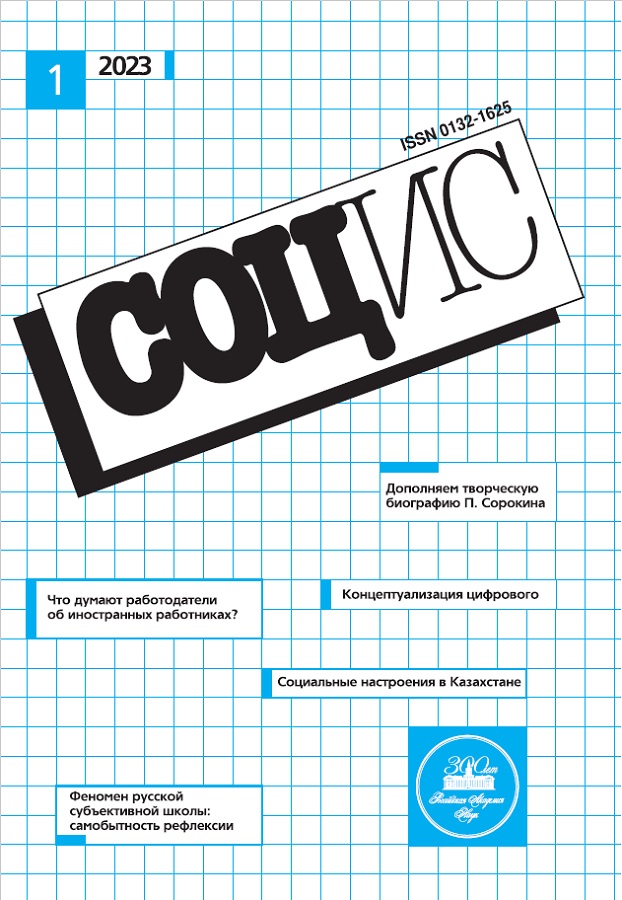Evaluation of Social Well-Being of Kazakhstan’s Students
- 作者: Abdiraimova G.S.1, Verevkin A.V.1, Lifanova T.Y.1
-
隶属关系:
- Al-Farabi Kazakh National University
- 期: 编号 1 (2023)
- 页面: 107-113
- 栏目: Articles
- URL: https://kazanmedjournal.ru/0132-1625/article/view/661282
- DOI: https://doi.org/10.31857/S013216250016670-0
- ID: 661282
如何引用文章
详细
The article offers an analysis of the social well-being of Kazakhstani student youth during the pandemic. Based on materials of research in Kazakhstan in 2019-2021 it has been found that the level of student satisfaction depends on the degree of social optimism/pessimism and well-being of society showing signs of instability. Over the past three years, high levels of social well-being are correlated with students who are confident about their future. The study also revealed a low assessment of social well-being by students experiencing material and psychological difficulties, as well as lacking social integration. Low assessment is also associated with fear of more long-lasting impact of the crisis. Particular attention in this study is paid to the issues of changing the social well-being of students and assessing the nature of social expectations, the possibility of certain problems in the near future, fears and confidence/uncertainty in the future and rethinking the social goals of young people before and after the COVID-19 pandemics.
全文:
作者简介
Gulmira Abdiraimova
Al-Farabi Kazakh National University
Email: socis@isras.ru
哈萨克斯坦, Almaty
Aleksey Verevkin
Al-Farabi Kazakh National University
Email: socis@isras.ru
哈萨克斯坦, Almaty
Tatiyana Lifanova
Al-Farabi Kazakh National University
编辑信件的主要联系方式.
Email: socis@isras.ru
哈萨克斯坦, Almaty
参考
- Cummins R.A., Mellor D., Stokes M., Lau A.L. (2010) Measures of subjective well-being. In: Mpofu E., Oakland T., eds. Rehabilitation and health assessment: applying ICF guidelines. New York: Springer Publishing Co.: 409–426.
- Toshchenko Zh.T., Harchenko S.V. (1996) Social mood. Мoscow: Academia. (In Russ.)










